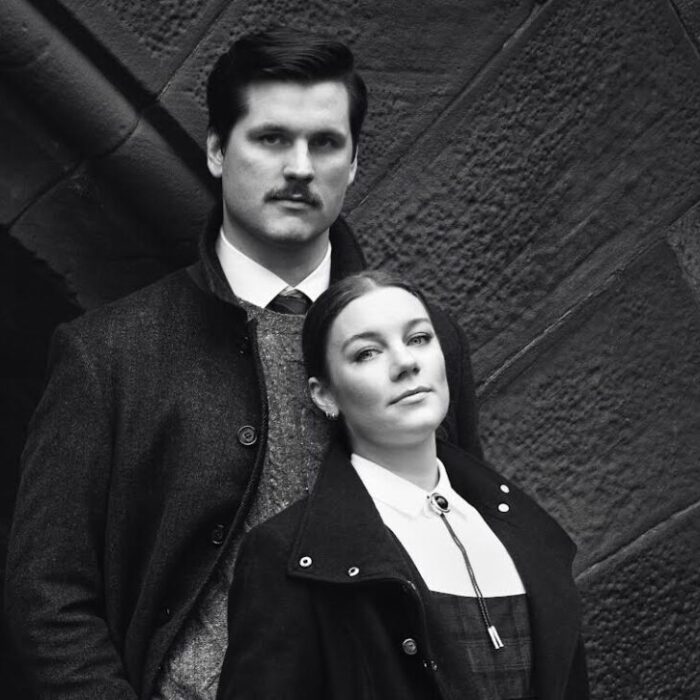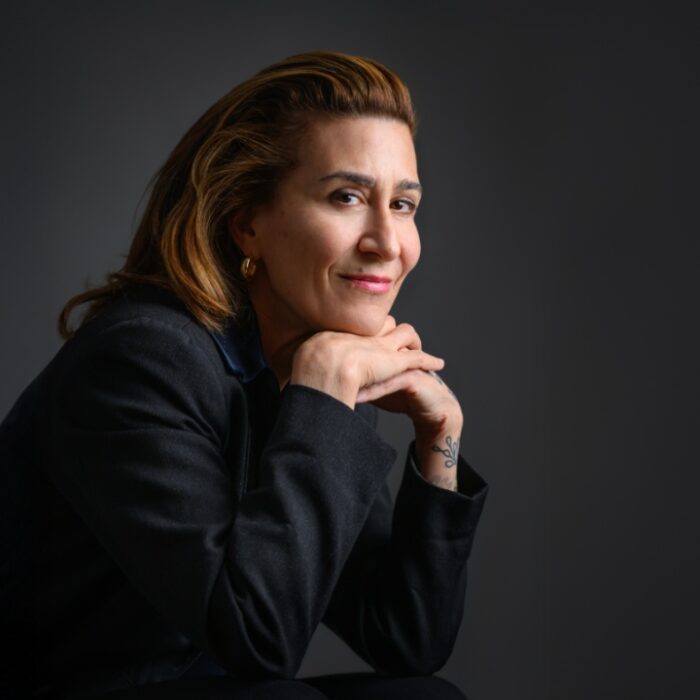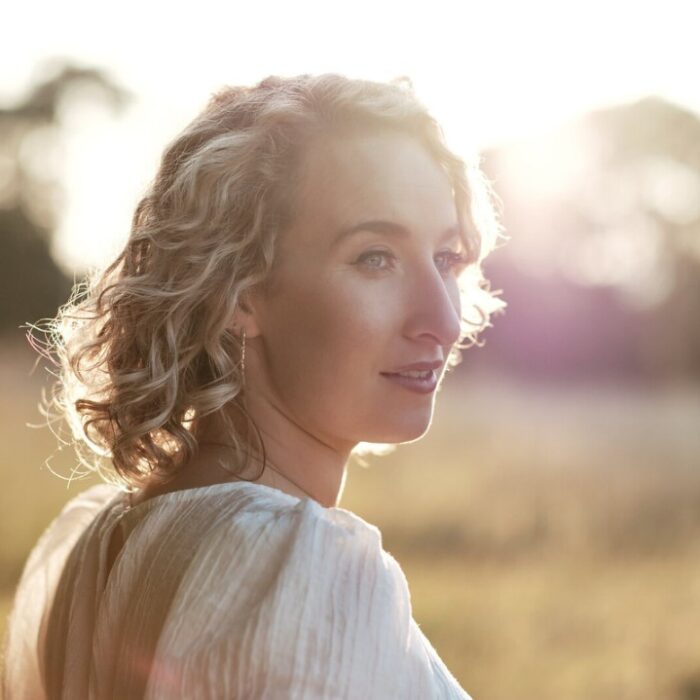
Q & A: Nicolò Balducci Talks About His Voice & The Roles That Are Making Him A Countertenor In Demand
By Alan Neilson(Photo: Guiseppe Tricarico)
Countertenor Nicolò Balducci first came to attention at the 2022 Early Music Festival in Innsbruck, where he won 3rd prize as well as the Young Artist Award in its Cesti singing competition. Three years later, he is now an established singer with an impressive CV, boasting a wide repertoire of roles from operas of the baroque era, including Nerone in Monteverdi’s “L’Incoronazione di Poppea,” Imeneo in Vivaldi’s “La Gloria e Imeneo” and Osmino in “La Fida Ninfa,” from which he received a series of excellent reviews. He is also active on the concert circuit and in the recording studio.
Still only 26, Balducci already has three solo CDs to his credit, the latest of which, “Confidenza,” sees him moving into the classical repertoire, in which he sings pieces by Mozart, Haydn and Beethoven, accompanied by Anna Paradiso on the piano.
Having just reviewed Balducci’s performance as Sesto in Cavalli’s “Pompeo Magno,” OperaWire took the opportunity to meet up with the young countertenor who is about to essay the roles of Ulysses in “Deidamia” at the Wexford Festival Opera and Annio in Mozart’s “La Clemenza di Tito” at Venice’s La Fenice, both of which will be reviewed by OperaWire.
OperaWire: What was your pathway into a career as an opera singer?
Nicolò Balducci: I started singing at a very early age with and adult choir. The small town in which I was born didn’t have a choir for youngsters. Then, in 2009, the Teatro Petruzzelli in Bari, that had been destroyed by a fire in 1991, reopened with a production of “Carmen.” I sang in the children’s chorus. I was about 10 or 11 at the time, and this was my first experience of singing in an opera and also the first time I sang in a theatre.
It was a wonderful experience, and I fell in love with the darkness. The stage lights are so strong I couldn’t see anybody in the audience. I was singing in the dark, and I felt a great sense of freedom; nobody could see me. It felt as if there was no one there to pass judgement, and I remember thinking that I wanted to keep on doing this.
Then as I moved into adolescence, I became more interested in pop music. I created my own band and started performing in venues in the area around my town. Initially, we played heavy metal but switched to mainstream pop as it was easier to get work. We sang songs by Queen and other popular bands. I sang them in my high voice. At the same time, I specialised in music at the high school. When my music teacher heard me singing at one of my shows, she suggested that I adapt my high voice to singing opera. Up to that point, I had never considered the idea; I didn’t even know what a countertenor was! So, I started taking sing lessons and found it quite natural; the voice was already in the right place.
OW: In 2022 you had a lot of success in singing competitions. They seem to have been significant in helping you establish your career. Would that be correct?
NB: That is correct! It was a very lucky period in my life because at the same time as applying for the Cesti competition, I also applied for the baroque section of the Renata Tebaldi competition in San Marino. Carlo Vistoli, who is a good friend of mine, had won this competition, so I thought I would try it too. I had been awarded third prize and the Young Artist Award at the Cesti in August, and then in September I won the Renata Tebaldi. I immediately started to get roles, and my career quickly moved forward.
OW: How would you classify your voice?
NB: I class myself as a countertenor soprano.
I realised that I had to be strict about how I define my voice. Countertenors are a big family, and I like to divide them into the categories of countertenor contralto and countertenor soprano. I have become very strict about this because I receive offers that do not suit my voice. It seems that many people simply believe that if you are a countertenor, you can therefore sing any role for a countertenor, and this is not true. Carlo Vistoli, for example, I cannot sing the roles he sings; they don’t suit my voice. I did try it once, and I was able to do it, but it was very tiring, and I don’t want to put my voice under such stress. So, by defining my voice more specifically, I can prevent the problem from arising.
I am not a high soprano like Bruno de Sá. I am more of a soprano secondo up to high C or high D. In the baroque period, it is not normal to go too high. I have a lot of characters in my repertoire as my voice has the right body. I shall be singing Odysseus in “Deidamia” in Wexford, which is perfect for my voice. Some singers can hit very high notes but don’t have the necessary rich centre, so the sound does not flow, and they are unable to sing many of the baroque roles that I am suited to.
OW: You have just completed a series of performances as Sesto in Cavalli’s opera “Pompeo Magno” at the Bayreuth Baroque Festival. How did you approach the role?
NB: When I play a role, no matter who it is, I try to find both sides of the character. It does not matter how vicious the character may be; I want to find the good side. If a character is too good or too bad, he is not interesting. It is a rule I stick to for every character I play. Generally, Sesto has a decent person. Mitridate actually says that Sesto is a pure man, even though he tried to seduce his wife. Sesto made a mistake, and this is what it is to be human. He feels the guilt and knows he will be judged for his sin. If you try to portray Sesto as a saint, however, it won’t work. At the beginning, Sesto was nasty toward Issicratea and even tried to rape her. Yet, he is a noble man, and he sees himself as a lover, not as a rapist. He is conflicted and confused, and this is how I approached the role.
My first thought on accepting the role was that I had already performed the character in Händel’s “Giulio Cesare.” However, in that opera, Pompeo had already died, while in Cavalli’s opera, Pompeo is alive. So I have to portray him in this context. Sesto is living under Pompeo’s shadow; he is constantly struggling to be the son that his father could be proud of. It is something that defines him. He wants to meet his father’s expectations and to convince him that he is a worthy son. So, initially, I treat Issicratea like a slave and play around with her because she is my father’s prisoner. This changes when my he tells me that she is a queen and that I must treat her like one. I then start to respect her and to look after her interests, and I think this is the point I fall in love with her. Sesto’s way of behaving is, therefore, a direct consequence of his relationship with his father. At least, this is the way I see the character.
It is role that I really loved performing. It is a role full of emotion and depth with so much detail.
OW: How, if at all, did your characterization of Sesto draw on your performances of Sesto in Händel’s “Giulio Cesare?”
NB: In “Giulio Cesare,” when Pompeo dies, Sesto tries to get revenge, but he has a pure soul and cannot kill Tolomeo. He cannot take revenge. In “Pompeo Magno,” it is different; his bad behaviour is not motivated by revenge but by love. So, it added a further level of understanding, but it didn’t really affect my characterization6; after all, “Giulio Cesare” is set at a later date, so the events could not have affected him.
In February, I will be singing Sesto in “Giulio Cesare” in Florence, and I think I will take into consideration what I have learned about his character in “Pompeo Magno.”
OW: How did Max Cencic, the director, influence your characterization?
NB: This is the second year that I have worked with him, and I really enjoy it. He has some fantastic ideas. He really helps you to discover aspects of a character. When I first looked at the role, I didn’t realize that Sesto would be such a tortured character. I thought he would be more fun, and that I would be teasing Issicratea. Also, I never considered the idea that Sesto would be drunk when he tried to pressurize her into loving him, but Max’s idea really works. It makes the audience realize that Sesto is not in full control and is ready to do something crazy to get her.
OW: You have worked with Leonardo Garcia Alarcón on a number of occasions. What is it you appreciate about working with him?
NB: He is one of the best conductors I have worked with. It is incredible the way he creates the music to make it sound so up to date. I liked the way he rearranged the finale of the opera; instead of it ending with Farnace delivering the moral lesson of the narrative, it finishes with an impressive quartet, which he rearranged from a duo. He also adds effects on the timpani and with bells during the opera, which in my opinion is necessary if the score is to be brought fully alive. I also really love the way he directs the Cappella Mediterranea; they always manage to expand the music emotionally.
OW: You will shortly be singing in Händel’s “Deidamia” at the Wexford Festival Opera in Ireland. What expectations do you have about the performance?
NB: I have never been to Wexford before, so everything will be new for me, and to be honest I am not sure about what to expect. I know that I will be working with George Petrou, whom I have worked with in the past, and I have a very good relationship with him; he is fabulous to work with. I know he will also be doing the stage direction, and I have never worked with him in this capacity, but I have worked with his assistant director, Constantina Psoma. Also, Bruno de Sá and Sophie Junker will be singing, so I will be among friends, which means I will feel free to express myself without feeling judged. It makes a huge difference when you work with people like this, as it allows you to reach a higher level of performance, as there are fewer boundaries. I am really looking forward to it, and I think that together, we are going to create something very special.
OW: What role will you be performing in the opera, and what are its main challenges?
NB: I shall be singing the role of Ulysses. He is the main character but not the main lover. This rarely happens in opera. I have a duet with Deidamia about love, but it is not love between us. I move the situation forward. It is very strange. I am there to find Achille and convince him to lead the war against Troy. Achille is dressed as a woman until the third act, and this is probably why I am the primo uomo. I don’t know anything about the staging yet, but I think it should be very interesting.
Obviously, my character is heroic; it is Ulysses! It is an amazing role. I have seven arias to sing, and they are beautiful, really beautiful! It is Händel’s final opera. I have sung operas from many periods of his life, but here at the end you can feel the experience of the composer. I have the impression that in this opera he is more direct and gets straight to the point. My second aria, “Peredere il bene amato,” is slow, very controlled and very elegant. It sounds as if it is anticipating Mozart, as if knocking on the door of the classical period.
OW: Almost from the beginning, your career has moved rapidly in an upward direction. You must have already achieved many of your goals. What dreams do you still hope to live out?
NB: There are always dreams, and I still have many. I competed in Cesti in 2022 and got my first main role at the beginning of 2023, and since then I have been working non-stop. I want to perform all the Mozart roles suited to my voice. I have already done many, including Lucio Silla and Cherubino, and will be opening the 2025 – 26 season at Teatro La Fenice in November in the role of Annio in “La Clemenza di Tito.” Now I want to do Idamante from “Idomeneo.” Also, I would like to do Ariodante; this is a role I feel ready for! I know people think I am too young for some roles, as I am only 26, but I feel ready.
Of course, I would love to sing in the main opera houses around the world. I am really looking forward to singing at the Berlin Staatsoper.



